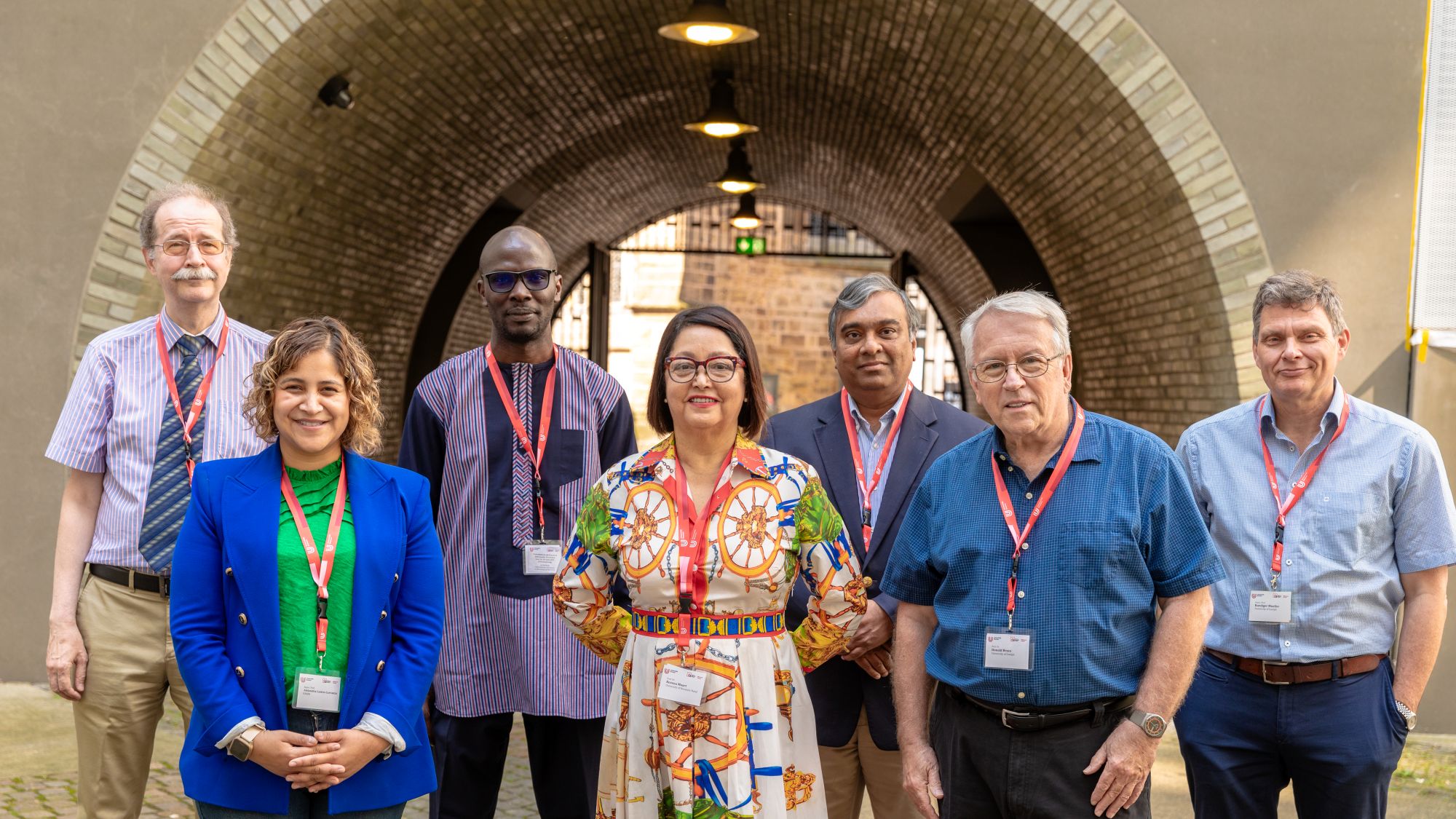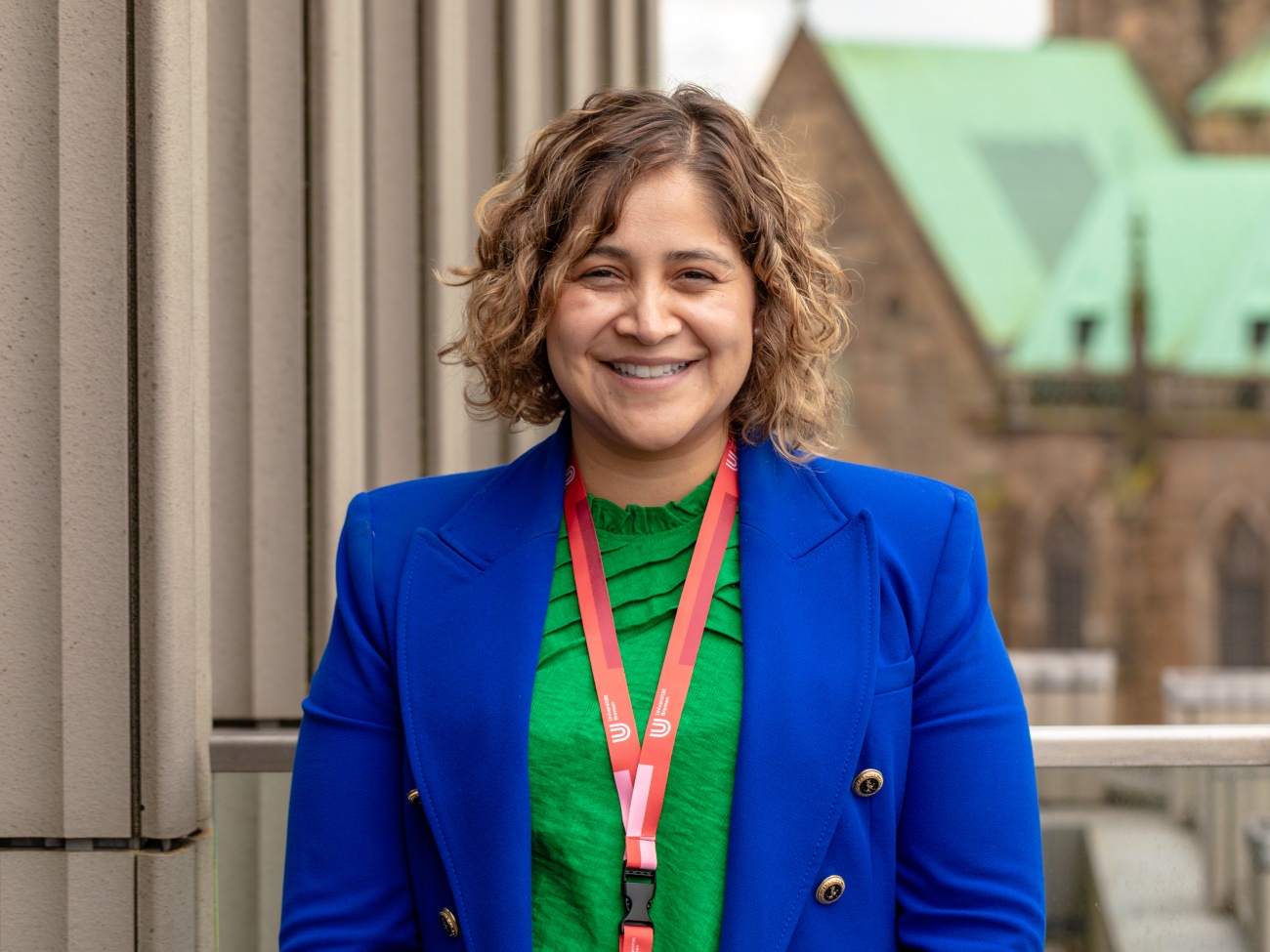
© Matej Meza / Universität Bremen
University of Bremen Ambassadors Around the World
The Research Ambassador program is celebrating its tenth anniversary
Every year, numerous international students and researchers come to the University of Bremen. For many of them, it is a one-time visit. Others return regularly, building both personal and professional networks between the University of Bremen and research institutions in their home countries. Some of them, who are particularly well-connected and active in key regions, are appointed by the University of Bremen as Research Ambassadors. To mark the 10th anniversary of the Research Ambassador program, up2date. introduces two of these researchers.
“Research Ambassadors are the international face of the University of Bremen,” explains Jana Sievers, the program coordinator in the International Office. “In their home countries, they act as personal contacts for researchers and students who are interested in a stay at the University of Bremen. They can answer questions and have solid knowledge about the institution, its research, and the location.” To strengthen these connections, the University of Bremen supports its Research Ambassadors in several ways. The “Seniors Bring Juniors” program allows ambassadors to invite early‑career researchers to the university. The university also covers some of the ambassadors’ travel expenses to Bremen and organizes networking meetings for them. In the long term, the program deepens the university’s international ties, creates new collaborations, and finds partners for future projects.
Research Ambassadors are appointed for a three‑year renewable term. At present, there are eleven ambassadors from eight different countries, affiliated with seven different faculties at the University of Bremen, plus an emeritus ambassador who remains actively involved. Two of the ambassadors, Alejandra Castro-Carranza from Mexico and Mazi Sanda from Cameroon, talk about what being a Research Ambassador means to them.
Alejandra Castro-Carranza, Associate Professor for Science of Sustainable Materials, National Autonomous University of Mexico (UNAM)

© Matej Meza / Universität Bremen
I first came to Bremen in 2013 for a research stay as a Marie Curie postdoc at the Institute of Solid State Physics. My husband and I lived in Bremen for nearly five years, and the older of our two daughters spent part of her childhood here.
In 2016, I read in an academic article that glyphosate had been found in beer, which sparked my ongoing research interest in identifying harmful chemicals. After returning to Mexico with my husband in 2018, we continued our research there. Currently, I am developing electrical devices that can detect such chemicals, especially substances like glyphosate. This is highly relevant in Michoacán, where we are based, because agriculture plays a major role here. Yet the ecological and health implications of these chemicals are not yet fully understood. This is an area in which we hope to find solutions through collaborative efforts.
In 2019, my husband and I founded Bremex, a growing network comprising 37 researchers and students from the University of Bremen and UNAM with affiliated research institutes. Our shared mission is to develop practical, sustainable technologies, such as sensors for pollutants and organic hybrid photovoltaic systems for sustainable energy generation and detection. Through our collaboration with MAPEX Center for Materials and Processes at the University of Bremen, we’ve created opportunities for Mexican students to study in Germany. So far, seven UNAM students have come to Bremen for research stays, while mobility to UNAM was also supported.
I have been a Research Ambassador for the University of Bremen since 2015, and I have many ties to the University of Bremen, both professional and personal. I already feel a bit like a Bremen local! My older daughter learned German in a Bremen kindergarten, and we watch German TV shows such as “Checker Tobi” and “Die Sendung mit der Maus” with both of our children. Working with Professor Jürgen Gutowski has had a particularly strong influence on my work. I have learned a great deal from his leadership style, and I try to apply these lessons to my own work every day.
Mazi Sandi, Junior Associate Professor of Ecology at the University of Ngaoundéré in Cameroon

© Matej Meza / Universität Bremen
From 2012 to 2015, I completed my Ph.D. under Dorothea Brückner in Bremen, where I then worked as a postdoc until 2019. During that time, I’ve worked closely with many amazing researchers there, including Juliane Filser, Hartmut Köhler, and Marco Rohlfs, with whom I still keep in touch today.
Right now, my research focuses on finding sustainable alternatives to pesticides and fertilizers through partnerships with indigenous communities in Cameroon. Many indigenous farmers know which plant-based substances are suitable as natural insect repellents, yet they cannot use these substances on a large scale. Meanwhile, they are the ones experiencing the harmful effects of chemical pesticides firsthand. Building on their expertise, I want to develop plant-based pesticides that work on a large scale. This would benefit not only local farmers in Cameroon but agriculture worldwide.
I truly believe that our universities can greatly benefit from cooperating with each other. There’s still so much we don’t know about Cameroon’s ecosystems, and I want to draw the attention of German and African students and researchers to these research opportunities. At the same time, I am eager to enable Cameroonian students and researchers to spend time at the University of Bremen. The labs here are better equipped, the library is top‑notch, and getting access to international journals is a lot easier.
I find the exchange with the other Research Ambassadors particularly valuable. Although we come from different disciplines, we have a lot in common, especially our academic commitment to sustainability. Right now, we’re planning a joint summer school on that very topic.
Besides Alejandra Castro‑Carranza and Mazi Sanda, the University of Bremen has appointed the following Research Ambassadors:
Prof. Dr. Krishnendu Chakrabarty, Arizona State University, USA – Research Ambassador in the Faculty of Mathematics / Computer Science
Prof. Dr. Kolyang, University of Maroua, Kamerun – Research Ambassador in the Faculty of Mathematics / Computer Science
Prof. Dr. Enzo Morosini Frazzon, Federal University of Santa Catarina, Florianópolis, Brasilien – Research Ambassador in the Faculty of Production Engineering
Prof. Dr. Alex Makulilo, Open University of Tanzania, Tansania – Research Ambassador in the Faculty of Law
Prof. Dr. Yanbing Mao, SILC Business School at Shanghai University, China – Research Ambassador in the Faculty of Business Studies & Economics
Prof. Dr. Andrei Yakovlev, Freie Universität Berlin – Research Ambassador in the Faculty of Business Studies & Economics
Prof. Dr. Frank Wilderson, University of California, Irvine, USA – Research Ambassador in the Faculty of Linguistics and Literary Studies
Assoc. Professor Ruediger Mueller, University of Guelph, Kanada – Research Ambassador in the Faculty of Linguistics and Literary Studies
Prof. Dr. Rozena Maart, University of Kwazulu-Natal, Südafrika – Research Ambassador in the Faculty of Linguistics and Literary Studies
Prof. Dr. Donald Bruce, University of Guelph, Kanada – Emeritus Research Ambassador in the Faculty of Linguistics and Literary Studies